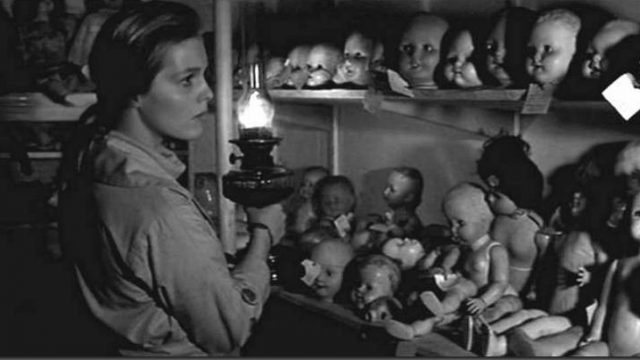Parenting is terrifying.
The author Philip Baruth once described dropping your young child off at daycare as handing your heart over to be cared for and hoping it would be all right for the next eight hours. If you’re an adult with any imagination, there’s no limit to the worries you can have during the course of an ordinary day. When your phone chimes with an Amber Alert or you see a poster at the grocery store, two thoughts cross your mind. One, the protective thought, is about the myriad ways that your child is different: Yours is older, younger, has a cell phone, lives somewhere else.
The other thought is, tragically, the correct one: That could have been my child. That terrified parent could have been me.
This is one of the reasons the late Gene Siskel hated “children in peril” movies in most circumstances: it’s an easy path to fear or fake melodrama. Even non-parents recognize the horror, the helplessness. Used poorly, it’s raising the emotional stakes without putting in the necessary work.
Bunny Lake Is Missing puts in the work, using the disappearance of a child as a frame not just for parental fears, but for the treatment of women — particularly mothers — and the way men often refuse to see them as they really are. On its surface, it’s a thriller; early adspromotions even stole Psycho’s conceit of not allowing latecomers into the theater. But director Otto Preminger has other themes in mind. Husband-and-wife scriptwriters John and Penelope Mortimer adapted Merriam Modell’s novel with several changes dictated by Preminger, including adding heroine Ann’s brother Stephen (Keir Dullea), but the central conceit remains the same: Ann (Carol Lynley) goes to pick up her child from preschool, only to find that Bunny is missing…and that no one seems to believe she ever was at the school at all.
Distraught, Ann asks her brother for help and contacts the local police. They send Superintendent Newhouse (Laurence Olivier, no less), an honest, straightforward, and skeptical detective. He is empathetic to Ann but not sure he believes her. As the movie progresses, we’re not sure we wholly believe Ann either, though Lynley’s performance is so committed and passionate it seems more likely than not that there is a real Bunny Lake, out there and in peril.
There are other movies that address the way women’s voices are discounted: Clint Eastwood’s Changeling, starring Angelina Jolie, is based on the real-life case of Christine Collins, who was briefly institutionalized for refusing to believe an imposter was her missing son. History and pop culture are filled with women who have been driven to doubt their own minds, called hysterical or malingering. Roman Polanski’s Repulsion, released in the same year, is a still darker tale that also addresses the disconnect between women’s experiences and the way men choose to define those experiences for them. Both movies traffic in real-life settings pushed to the point of the surreal. Both movies even feature sequences where the attractive heroine is sexually harassed by a creepy landlord.
Unlike Repulsion, though, Bunny Lake eventually clarifies that its heroine is still sane — desperate and terrified, but sane — and reveals that Bunny Lake is real, and in peril. Newhouse saves the day, but it’s a close thing. The climax of Bunny Lake Is Missing is tense as hell, and also genuinely bonkers, with the kind of dime-store psychology that seems to have dominated thrillers in the early sixties. When Ann and Bunny are finally reunited, it’s not wholly cathartic; their family has been irrecoverably damaged, and their safety comes down to timing, luck, and one simple mistake. Bunny Lake Is Missing is about the peril of not listening to women, about the complicated ties within family, and the terror of what might happen if you leave your heart with the wrong stranger.
Bunny Lake Is Missing was a critical disappointment, and director Otto Preminger wasn’t particularly happy with it, either. It did receive two BAFTA nominations — for British cinematography and art direction — and in more recent years, critics have shown it more positive attention. Ryan Lattanzio, writing for Indiewire, called it ahead of its time (and also “unabashedly deranged”), which I can’t disagree with, and it shows up on TCM from time to time. Even if the themes don’t appeal to you, it’s well worth checking out for the excellent black and white cinematography and that tense final act.
Bonus tracks:
- Bunny Lake Is Missing is also notable for the presence of the Zombies, who have three songs in the film and were featured in the film’s marketing. (Perhaps ironically, the film does not feature their most famous track, “She’s Not There.”)
- Saul Bass also designed an excellent poster for the film.
- The doll hospital is genuinely creepy.

